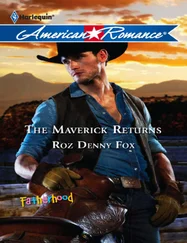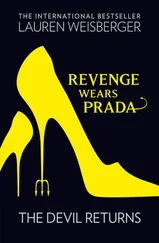Hagen told the front desk to call him whenever a car came for him. He left a wake-up call for 1:45.
It came. He awoke famished. Hagen hated late lunches. Two o’clock came and went. Hagen called down and was told, “No, sir, there still hasn’t been anyone asking for you.”
He hung up the phone and stared at it, willing it to ring. Like a stupid kid waiting for his sweetheart to call. He picked up the phone again and had the operator connect him with Mike’s office. No answer. He tried Mike’s home number. If the meeting with the Ambassador were about anything of lesser stakes, Hagen would already have been on a plane home. Kay’s father answered. Michael and Kay had gone out for their anniversary lunch. Hagen had forgotten. He’d catch up with Mike later. Then he called home to say he’d gotten in okay and everything was fine, and Theresa was crying because Garbanzo, their arthritic dachshund, had run away. The kids had made flyers and posted them in the neighborhood and now were out looking for their pet. What if the dog wandered out into the desert? Think of all the ways it could die then: coyotes, cougars, snakes, thirst. There was an atomic bomb test tomorrow; think of that. Hagen tried to calm her down. He reassured her that an arthritic dachshund probably couldn’t have made it out of the subdivision, much less the sixty-some miles to that test site.
Hagen looked at the racquet, available for twenty bucks at any hardware store and not nearly as good as the one he had at home. In his mind’s eye, he saw his brother Sonny, outraged at this show of disrespect, ordering everything on the room service menu, eating what he wanted and pissing over all the rest, then smashing up the racquet and the room, too, sticking the Ambassador with the damages -we don’t take cash, you have to sign for it- and heading home. Hagen ’s stomach growled. He smiled. He missed Sonny.
The phone rang. His driver was here.
Hagen went down, but there was no car there. He asked the parking attendant. No cars for a while now, he said. Hagen ’s head pounded. He’d forgotten his sunglasses. Squinting was painful. Back in the lobby, he saw a Negro in a tuxedo. He’d pulled up on the other side of the building, in an optic-white-roofed, six-seater golf cart. It was after two-thirty.
“This may be the biggest golf cart I’ve ever seen.” Hagen shielded his eyes from the glare off the vehicle’s white skin.
“Thank you, sir,” said the driver, clearly someone who’d been told in his training not to make eye contact with his employers or their associates except when spoken to.
The ride across the golf course, through a maze of tennis courts, and across another golf course took about fifteen minutes, during which each of them averted his eyes from the other.
When the Ambassador had first gone into business with Vito Corleone, his name had been Mickey Shea. Now he was known in the newspapers as M. Corbett Shea. No one called him Mickey. Close friends and family, even his wife, called him Corbett. To everyone else, he was the Ambassador. His father had left County Cork, settled in Baltimore, and opened a saloon across the street from the one Babe Ruth’s dad owned. The oldest of six children, Mickey Shea grew up working hard-scrubbing floors, lugging boxes, shoveling manure from the street and snow from the alley. But his life, especially compared to other Irish kids’ in the neighborhood, was a comfortable one. Soon, though, his parents began sampling too much of their own wares. They lost everything. His mother became the rare woman who chooses a gun to kill herself, opening wide to wrap her mouth around the barrels of a sawed-off shotgun taken from the shelf under the cash register. Mickey, snow shovel in hand, was the one who discovered her near-headless body in the alley behind the bar. His father just kept drinking until that, too, did the job.
Mickey joined the army at seventeen and soon became a supply sergeant. It was there, not (as legend had it) on the streets of Baltimore, that he learned that there were the rules and then there was what people do. The black market, lucrative in peacetime, proved to be a license to print money once the United States entered the war. The week after the armistice, Sergeant Shea rigged himself an honorable discharge. He was a millionaire, most of it in cash. He went to New York and opened a tavern in the Tenderloin district. Being both Irish and a fine negotiator, he quickly forged useful bonds with the police and, more important, Irish street gangs like the Marginals and the Gophers. He bought a few warehouses near the piers, a solid investment that helped him keep his import-export skills sharp. And that might have been that, if not for Prohibition. Shea was God’s perfect bootlegger. He owned warehouses. He employed dockworkers. He knew how to move goods outside the law. He had friends in two eastern cities and people in Canada, former supply sergeants from the RAF with whom he’d done business and remained friendly. And not only did he run a tavern, he ran one known as a cops’ bar. Nearly overnight, that tavern became an ice cream parlor and its basement was gutted, remodeled, and reopened as a speakeasy. The cops, his former regulars, were now paid to drink there for free-money well spent, since the place got a word-of-mouth reputation as one safe from raids. Before Shea knew it, that basement was a who’s who of Manhattan swells-opera divas and Broadway stars, newspaper publishers and their star columnists, flashy lawyers and florid aldermen, even presidents of banks and titans of Wall Street. Shea bought the building next door and tunneled through to its basement, almost tripling the size of the place. A full orchestra played there every night. It was as brazen an operation as existed anywhere in America.
But Mickey Shea was a man who had seen things. During the war, men like him could get rich, but there was a whole tier of rich and powerful people above that, people who hadn’t had to get their hands dirty setting up a swap of morphine and girlie pictures for blood and generators, who’d never had to work the room slapping the backs of men they’d bribed. He’d used his connections with the cops in lower Manhattan to help keep the converted olive oil trucks from getting stopped on the way to his warehouses (and to keep those warehouses from getting raided), but what were those men in those trucks doing that he couldn’t do? Why was he getting only the warehousing money and the money from the speakeasy when he could just as easily -more easily-bring the stuff down and sell it himself? So men in Canada set him up with a fleet of speedboats and retrofitted syrup trucks. Soon the men in the olive oil trucks were blowing up his boats and his trucks-often with Shea’s men still inconveniently inside. Shea got cops to get other cops to get other cops to look out for his people, a corridor of sheriffs, judges, and beat cops all the way from Quebec to Manhattan, which helped but didn’t solve things.
One day, Genco Abbandando- Hagen ’s predecessor as consigliere and the man Shea thought owned Genco Pura Olive Oil-contacted a police captain on Shea’s payroll and set up a meeting between Mickey Shea and Vito Corleone. They met at the lunch counter of an Italian grocery store in Hell’s Kitchen, only six blocks from Shea’s warehouses but someplace he’d never been. He hated spicy food and refused to eat anything but bread and sauceless noodles. When the meal was finished, Don Corleone explained that the men running those converted trucks were only leasing them from Genco Pura, then let the implications of this sink in. He spoke of the wastefulness of free-market competition, and here, too, Mickey Shea was a quick study. Don Corleone told Mickey Shea that he believed that someone with so many friends (he did not have to say in City Hall and on Wall Street and especially among the Irish-dominated ranks of law enforcement) must be a great man, someone it would be profitable to know. Mickey Shea’s friends became friends of the Corleone Family. Shea was instrumental in building up Don Corleone’s political and legal connections, ultimately his biggest source of power. Don Corleone was instrumental in amassing for Shea so much wealth-at such great reserve both from any bloodshed and from the overt display of muscle necessary to prevent it-that even before the death of that great cash cow Prohibition, Shea was able to sever all traceable ties to the sources of his wealth and reinvent himself in the public eye as a blue blood: M. Corbett Shea, president of a brokerage house, part owner of a baseball team, and much-photographed philanthropist (the country’s many Corbett Halls, Corbett Auditoriums, and Corbett Public Libraries were funded by the Ambassador). His children went to Lawrenceville and then to Princeton. Their service in the war was packaged in national magazines as heroism. He served as the ambassador to Canada for the last six weeks of a lame-duck president’s term-not long enough to move his family but long enough to get the title. His oldest daughter was married to a Rockefeller. His oldest son was now governor of the great state of New Jersey.
Читать дальше











